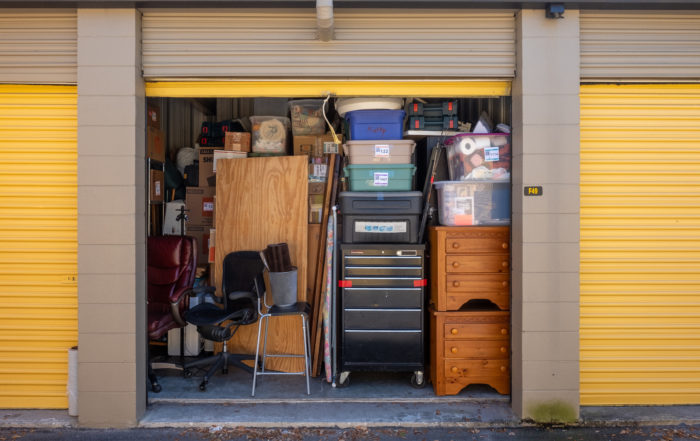Long-Term vs. Short-Term Self-Storage: Choosing the Right Option for You
Are you needing self-storage but are unsure whether to opt for a long-term or short-term solution? Choosing the right storage duration is crucial to meet your specific needs and budget. In this guide, we’ll explore the differences between long-term and short-term self-storage options and provide insights to help you make an informed decision.
Assess Your Storage Needs
Before deciding on the duration of your self-storage rental, assess your storage needs carefully. Consider factors such as the type and quantity of items you need to store, how frequently you’ll need access to them, and your budget constraints. This evaluation will help you determine whether long-term or short-term storage is the most suitable option.
Understanding Long-Term Storage
Long-term storage is ideal for items you don’t need to access frequently and plan to store for an extended period, typically six months or longer. Common items stored in long-term storage include seasonal furniture, archived documents, sentimental belongings, or items awaiting relocation. Long-term storage offers cost-effective solutions for securely storing items over an extended duration.
Exploring Short-Term Storage Solutions
Short-term storage, however, is suitable for storing items temporarily for a few weeks to several months. Short-term storage is often chosen for transitional periods such as moving, renovating, or decluttering. It provides flexibility and convenience for storing items temporarily until they are needed again.
Consider Temporary Storage Solutions
Temporary storage solutions offer flexibility for short-term storage needs without the commitment of a long-term rental agreement. Many self-storage facilities offer flexible lease terms, allowing you to rent storage units on a month-to-month basis or for a specific duration. Temporary storage solutions are ideal for accommodating short-term storage needs without locking you into a long-term contract.
Evaluate Extended Storage Options
If your short-term storage needs extend beyond the initial timeframe, evaluate extended storage options offered by self-storage facilities. Many facilities allow you to transition from short-term to long-term storage seamlessly, providing the flexibility to adjust your storage duration as needed. Extended storage options ensure continuity and convenience without the hassle of relocating your stored items.
Assess Cost Considerations
When choosing between long-term and short-term storage, consider the cost implications associated with each option. Long-term storage typically offers lower monthly rates compared to short-term storage, making it more cost-effective for extended storage durations. However, short-term storage provides flexibility and convenience, especially for temporary storage needs.
Plan for Access Needs
Consider your access needs when deciding on the duration of your self-storage rental. If you anticipate needing frequent access to your stored items, short-term storage may be more suitable to accommodate your accessibility requirements. However, if you don’t need regular access to your belongings, long-term storage offers a cost-effective solution for securely storing items over an extended period.
Review Storage Duration Policies
Before finalizing your self-storage rental agreement, carefully review the storage duration policies of the facility. Ensure that the terms align with your storage needs and provide the flexibility to adjust your rental duration if necessary. Clarify any questions or concerns regarding storage duration, fees, and termination policies to avoid any surprises down the line.
Choosing the right duration for your self-storage rental depends on your specific needs, budget, and storage requirements. Whether opting for long-term storage to securely store items over an extended period or short-term storage for temporary needs, consider factors such as storage duration, temporary storage solutions, extended storage options, cost considerations, access needs, and storage duration policies. By evaluating these factors carefully, you can make an informed decision and choose the storage duration that best meets your needs.
Ready to start storing? Get in touch today!
Recent Posts
Understanding Self-Storage Lease Terms: What to Know Before You Sign
Renting a self-storage unit is often one of those tasks that feels simple at first—pick a unit, sign a lease, move your stuff in. But if you’re like most people, the fine print on that [...]
What Not to Do When Using a Self-Storage Unit: 9 Common Mistakes to Avoid
Self-storage units are a convenient and affordable way to store everything from furniture and keepsakes to business inventory and seasonal gear. Whether you’re moving, downsizing, or just trying to declutter your space, renting a storage [...]
How to Keep a Storage Unit Clean and Tidy
A self-storage unit can be a lifesaver when you need extra space, but without proper organization and upkeep, it can quickly become cluttered. A clean and tidy storage unit not only makes it easier to [...]



